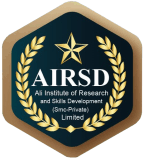Call for papers
Ever since personal computers and mobile devices have become ubiquitous in our daily lives, they have become an integral part of learning and teaching at all levels. Computers have traditionally been a source and medium of creating, storing, and exchanging information by students and teachers, as well as being used for automated assessments. Recent advances in mixed reality, machine learning, and cloud computing have enabled computers to become semi-autonomous teaching agents, providing real-time feedback and guidance. Furthermore, there is also potential for smaller mobile devices to assist in teaching and monitoring student progress 24/7. This Special Issue invites articles that discuss topics of computer-assisted learning in any form.
Neural networks have brought eye-catching performance improvements the approaches to many prediction and decision-making problems. Machines can perform a variety of complex tasks that only humans could perform several decades ago. In fact, machines are performing better than humans in various fields. However, neural network models provide poor predictions in many situations. The user of neural networks must develop an understanding of situations where neural networks can potentially provide poor performance. A good knowledge of the causes of uncertainties can potentially assist future researchers to design more robust models. Additionally, current users of the prediction systems would be able to understand the credibility of the prediction.
When submitting your manuscript, please indicate: AICAL
Guest editor:
Prof. Peng Li, Dalian University of Technology.






